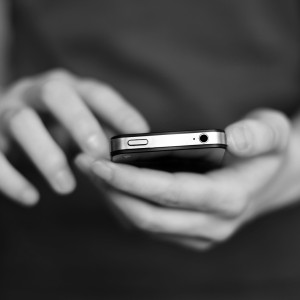In a landmark ruling, a California judge decided federal authorities cannot force you to unlock your smartphone with your fingerprint or face, which privacy and legal experts call a huge win for privacy.
Now the issue is likely headed to the Supreme Court of the United States (SCOTUS) due to a split in the circuit courts over the issue.
The magistrate judge for the northern district of California, Kandis Westmore, argued that a person’s fingerprint, face, or any other biometric features used to unlock a device should be considered equivalent to a passcode, and therefore biometric features are testimonial under the Fifth Amendment. Her decision builds on the 2016 ruling for Securities and Exchange Commission v. Bonan Huang, in which a federal judge ruled authorities cannot force a user to give up their private passcode.
Therefore, Westmore said, authorities can’t force you to unlock your phone with your face or fingerprint because that violates your Fifth Amendment right to remain silent and not testify against yourself in court.
“Even if probable cause exists to seize devices located during a lawful search based on a reasonable belief that they belong to a suspect, probable cause does not permit the government to compel a suspect to waive rights otherwise afforded by the Constitution, including the Fifth Amendment right against self-incrimination,” Westmore writes in the ruling.
Electronic Freedom Foundation (EFF) Staff Attorney Jamie Williams told InsideSources in an email that the decision strengthens fundamental privacy and constitutional principles despite technological advances.
“It’s important that courts are looking closely at how searches of digital devices affect our constitutional rights,” she said. “This has implications not only on law enforcement’s ability to lawfully search a phone, but also on law enforcement’s ability to force people to unlock their phones and thereby serve as witnesses against themselves. As Magistrate Judge Westmore correctly recognized, given the sheer amount of data on modern day cell phones, the government simply cannot anticipate the full contents of someone’s phone, and any order compelling someone to unlock their phone — whether via a numeric passcode or a fingerprint scan— violates the Fifth Amendment privilege against self-incrimination.”
Greg Nojeim, senior counsel for the Center for Democracy and Technology (CDT), told InsideSources the ruling echoes the Carpenter v. United States SCOTUS ruling from June 2018, which determined that finding the physical location of a cell phone without a warrant violates the owner’s Fourth Amendment rights.
“The court is saying, we have to treat fingerprints like the other technological means of accessing the phone, like a password or passcode,” he said. “They’re serving the same function and therefore we should treat them the same way under the Fifth.”
But he also said the government will likely appeal the decision in district court, especially since the circuit courts already in disagreement over whether a phone’s passcode is testimonial.
“This adds fuel to the fire by creating a split among the courts about whether faces or fingerprints are likewise testimonial,” Nojeim said. “Now we’ve got one magistrate judge saying that, unlike what other judges have said, the fingerprint and the face can also be testimonial.”
“The government would probably argue that unlike a password, a fingerprint is not something you intentionally communicate, but rather a feature of your body and the use of such a feature to gain access to information is not testimonial like being compelled to say something is. It’s a difficult issue, and it’s an important issue,” Nojeim said.
Nojeim also thinks it’s important to consider how phone users think about fingerprints and passcodes: to the user, they’re equivalent in that they are both methods to unlock the phone. The user doesn’t think about how his or her fingerprint might be used against them if used to unlock their own phone.
“Does a person really think that when they activate the convenience of facial or fingerprint recognition on their cellphone, that they are giving up some level of control to the information that they are seeking to protect? The level of control they have, compared to using a password, is diminished,” Nojeim said. “Perhaps the court would consider more favorably the magistrate judge’s decision in this case because it recognizes the fact that consumers aren’t thinking differently about facial recognition as a protector versus a password as a protector.”

